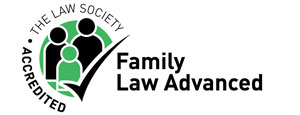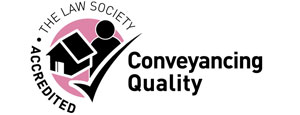



Plymouth PL6 5AD

Stephen qualified as a solicitor in 1988 and is currently Head of the Private Client Department involved in General Probate Administration, preparation of Wills, Lasting Power of Attorneys and Deputyship applications to the Court of Protection. Stephen also has a particular interest, and has many years’ experience, both in Civil, Personal Injury including asbestos related claims and contested Inheritance Act disputes.



Unfortunately there are many misconceptions about how Wills and other estate planning documents work. Don't let unfamiliarity stop you from properly planning your estate. Here are some frequently asked questions & answers.
A Will is a document which allows you to decide how your money and property will be distributed after your death and who should deal with the administration of your estate. To be valid, it must be signed by you and witnessed by two people. The witnesses must see you sign the Will and then sign it themselves.
 What if I don't make a Will?
What if I don't make a Will?If you die without a valid Will the law will determine how your money and property is distributed. This will depend on many factors such as whether or not you are married or have children, and the value of your estate, but the result might not be what you want or expect.
 Why should I get a solicitor to make my Will?
Why should I get a solicitor to make my Will?Whilst it is not a legal requirement, to have a Will drafted or witnessed by a solicitor. It is generally advised that you should use a solicitor to make, or at the bare minimum check your Will. There are certain requirements in making a legally valid Will, and errors can be costly financially and in time spent administering your estate and obtaining Probate.
 Here are a few common mistakes
Here are a few common mistakesA common misconception is that, if you are married, your spouse will automatically inherit all of your estate. This is not necessarily true. If you do not have a Legal Will then the law will decide what happens to your money and it may not be what you want.
The failure to account for all money, property, investments and pensions.
To take into consideration the possibility to a beneficiary pre-deceasing the person who has made the Will.
Amending or altering a Will without witnesses.
The effects of divorce, dissolution of a civil partnership, a new civil partnership or marriage.
The list above is just a small sample of the pit falls waiting for those who have a Will that is in actual fact NOT a legal document.
 How do I make a Will?
How do I make a Will?Evans Harvey Solicitors Wills and Probate department deal with all aspects of Wills, estate planning and administration, including tax advice and trusts. The process is usually quite straightforward and should only take a short time to prepare your new Will. During an initial meeting with one of our Wills and Probate specialists we will ask what you want to happen on your death and give advice on the best way to achieve what you wish to happen as a result of your Last Will.
Before the initial meeting it's a good idea to think about what you want included in your Will, things that you should consider:
Evans Harvey Solicitors will then draft your Will and send it to you for approval. We will answer any queries and make any changes to the draft Will and we will then prepare the final Will for signature. It is essential that the correct procedure is followed when signing the Will, so we recommend that you come back to us for another meeting to sign it, if that is difficult to arrange, we can send the Will to you with instructions to follow.
We will then store the Will for you and provide you with photocopies to keep at home. This is to ensure that the Will is kept safe and is not accidentally lost or damaged, we do not charge for this service.
 What is probate?
What is probate?Probate is the method by which the executors or administrators obtain the court's permission to deal with the deceased's person's estate (collecting assets, paying liabilities and eventual distribution to the beneficiaries under the terms of the Will)
The executors or administrators are required to complete appropriate tax returns, swear an oath confirming the information they have provided and affirmation of their commitment to deal with the estate in a proper and timely manner.
 The Will names several Executors, who does what?
The Will names several Executors, who does what?Up to four executors can jointly apply for the grant of probate. Executors who do not wish to act can renounce their executorship or reserve powers. One option is for the executors to act jointly, agreeing their decisions. This can be a rather cumbersome way to deal with the estate, particularly if executors are busy or live in different areas.
More commonly, the executors will agree amongst themselves for two executors to take the lead. If one of the executors is a solicitor, then that solicitor will usually guide and assist the remaining executors through the administration process. Alternatively, the executors may decide to act together but appoint a solicitor to provide advice and deal with the paperwork on their behalf.
 Why do people choose to use a solicitor to help with probate and estate administration?
Why do people choose to use a solicitor to help with probate and estate administration?Acting as an executor can be a complex and time-consuming task. It can also be stressful if you are coping with the death of someone close to you, or you find yourself in the middle of family disputes.




If you have any questions for our legal teams then please do not hesitate to contact us. 01752 785 715
